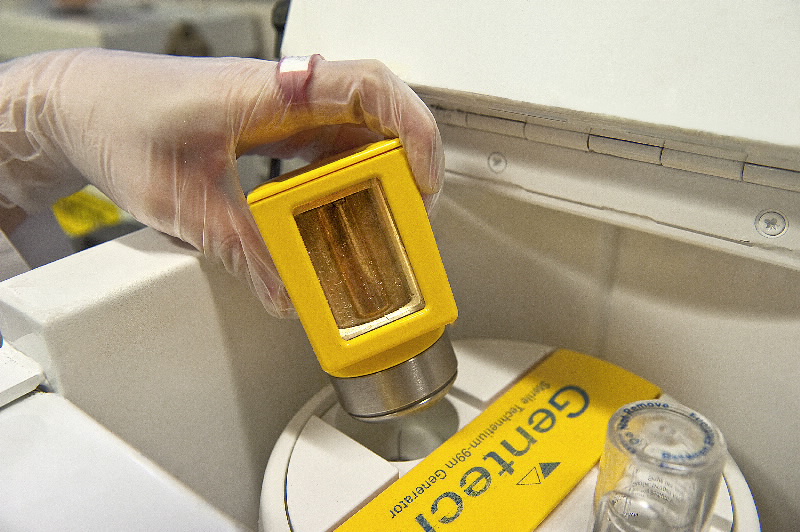ANSTO has launched improved technology that will deliver technetium - the world s most widely used isotope in nuclear medicine - more efficiently to imaging centres throughout Australasia and southern Asia.
The technology - the Gentech generator - was developed by ANSTO, and bears the Australian Radioisotopes (ARI) trademark. It has now been approved by Australia s Therapeutic Goods Administration.
As well as being used to supply some 150 nuclear medicine hospitals and private imaging practices throughout Australia, the Gentech generator will be used by ANSTO customers in New Zealand and southern Asia. The technology is initially being rolled out to customers in NSW and Victoria, followed by all other Australian sites.
Gentech will lead to better labelling efficiencies which can mean sharper medical images. The improved radiation shielding of Gentech makes handling of the isotope technetium safer. Technetium is used in more than 70 per cent of nuclear medicine procedures worldwide.
 |
| Gentech will lead to better labelling efficiencies which can mean sharper medical images. |
This workhorse of nuclear medicine is used to produce images of the brain, lungs, kidneys, liver, spleen, gall bladder, skeleton and the cardiovascular system.
It is injected into the patient with a carrier substance chosen specifically to zero in on the part of the body to be scanned. Technetium emits gamma radiation, which is detected by special cameras.
Computers are used to enhance the images, which are then examined by nuclear medicine specialists for signs of disease.
Medical imaging, which is safe and non-invasive, is being used increasingly. It is estimated that most Australians will undergo some form of nuclear medical imaging in their lifetime.
Making technetium is ANSTO s biggest radiopharmaceutical activity. Technetium is complemented by a wide range of other isotopes used in nuclear medicine made both at the HIFAR reactor at Lucas Heights and at the National Medical Cyclotron at Camperdown.
Ideally, only very short-lived radioisotopes are used in medical imaging. This keeps the patient's radiation dose at a minimum. Technetium's half-life is just 6 hours, ideal for patient safety.
The generator is produced with material from ANSTO's nuclear research reactor. Gentech uses "dry bed" technology, which maintains technetium yields while increasing the purity of the product.


